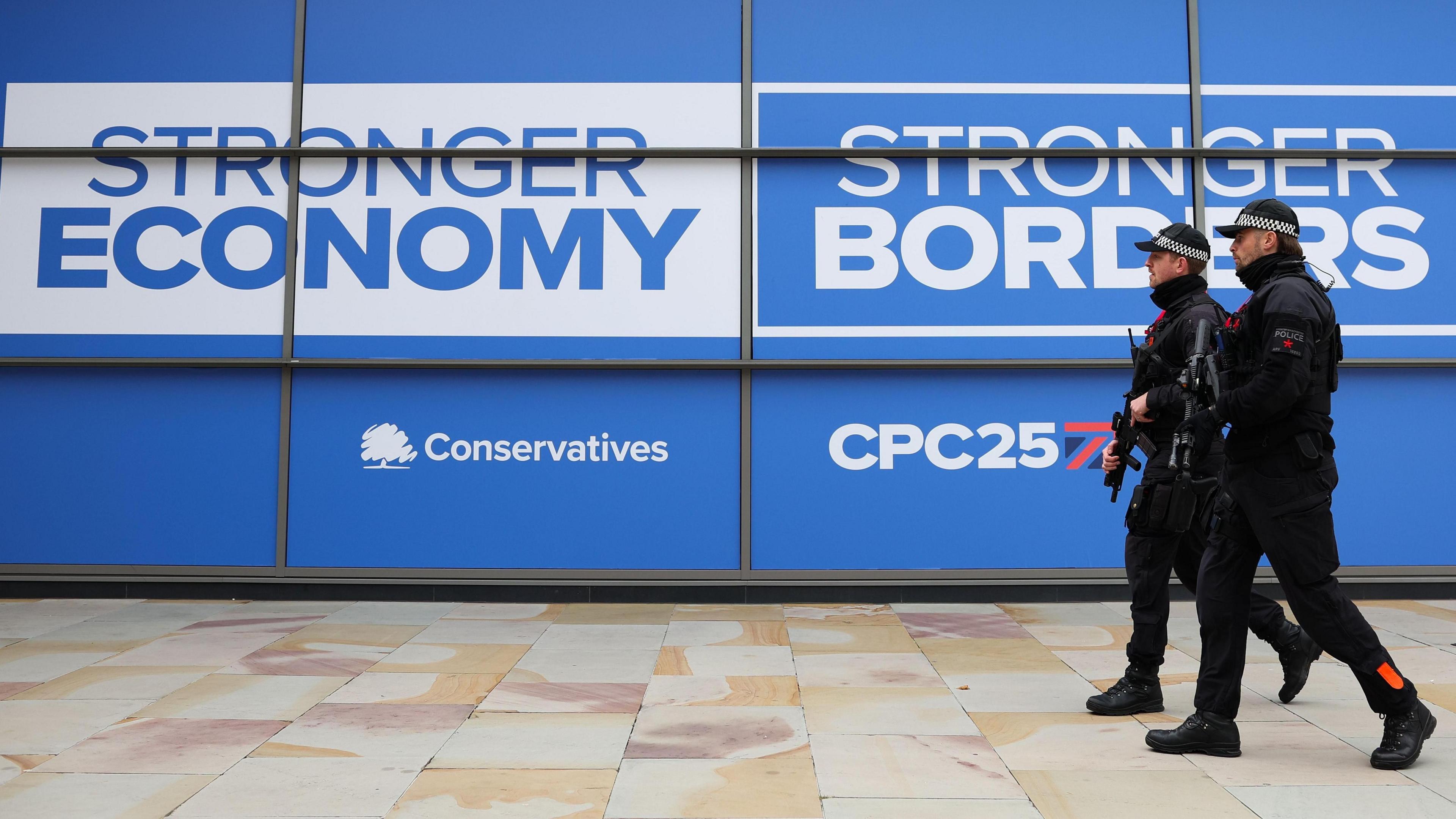Chris Mason: Why protests have started a debate over 'Britishness'

The Conservative Party conference in Manchester is taking place against a backdrop of grief and pain over last week's synagogue attack
- Published
When a political party gathers for its annual conference, the host city (or at least the political and security bubble that surrounds the conference centre) becomes home to feverish and partisan political chat.
What is different about the next few days is Manchester is also a city in mourning after the horrific attack on Thursday.
There is, of course, still sharp political argument here but the emotional and practical backdrop is one of grief, fear and an ongoing police investigation.
The flags outside the conference centre fly at half mast.
A community just a few miles from here, but also all over the UK, is terrorised, frightened and grieving.
Many Jewish people are furious more has not been done - for years - to protect them.
And all this poses some of the biggest questions about who we are and what we hold dear.
The other day the Home Secretary Shabana Mahmood pleaded with pro-Palestinian protesters not to head out onto the streets in the immediate days after the attack at the Heaton Park Synagogue.
She argued that to do so would be "un-British".
But others ponder just how British it is to curb repeated protests - the plan Mahmood now plans to legislate for.
Conservatives to pledge £5,000 tax rebate for young homebuyers
- Published6 October
Police to get broader powers to restrict repeated protests
- Published5 October
The battle is on for the Conservatives to show they matter
- Published4 October
So what are the fundamental tenets of Britishness - a concept itself some would contest - under which a multicultural, multilingual, multireligious collection of nations such as the UK could agree on?
Against the backdrop of pain and grief, this is a debate about some of the fundamentals of our society - democracy, protest, offence, tolerance (even tolerance for the intolerant) and proportionality.
In addition to antisemitism, there is Islamophobia too.
The home secretary talked over the weekend, rather euphemistically, about what she called "community relations" and others might put more baldly as racism and hatred.
The Conservative leader Kemi Badenoch said the UK had tolerated what she called radical Islamist ideology "for too long".
This element of the conversation around the dangers of Islamism and how it is countered is not new and itself infuriates many as we collectively wrestle with what to do about it.
These are challenges for the home secretary, challenges for the government yes, but challenges for society as a whole.

Sign up for our Politics Essential newsletter to read top political analysis, gain insight from across the UK and stay up to speed with the big moments. It'll be delivered straight to your inbox every weekday.